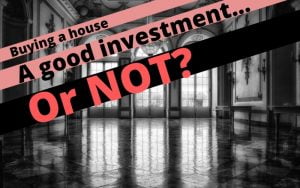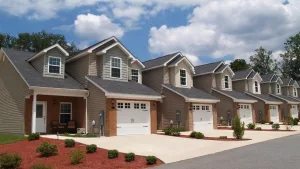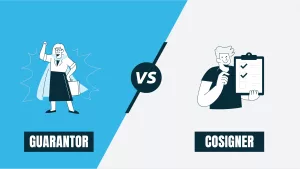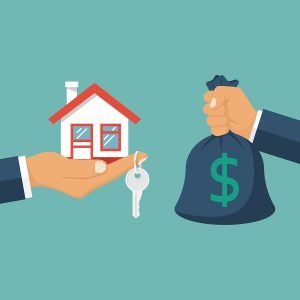When Is Buying A Home A Bad Investment? – 2023
Go Back To Previous PageWe all hear the “real estate is a perfect investment” spiel. To a point, it’s true. Real estate generally increases in price, and the truth is that it can help you build equity and avoid paying higher amounts in rent. When you pay it off, it’s an excellent way to ensure that you will likely have a roof over your head for the rest of your life. So, in that sense, it is an excellent investment. Unfortunately, there are moments when people genuinely regret buying a house. When is Buying A Home A Bad Investment?
help you build equity and avoid paying higher amounts in rent. When you pay it off, it’s an excellent way to ensure that you will likely have a roof over your head for the rest of your life. So, in that sense, it is an excellent investment. Unfortunately, there are moments when people genuinely regret buying a house. When is Buying A Home A Bad Investment?
Whether it’s because the home is unlivable or because of extenuating circumstances, there are moments when you really should rethink purchasing a particular home. Are you wondering what kind of house would be considered a “no-go” by investors who want to sell it at a profit or rent it out?
Here’s the scoop on the three most significant issues that could make investors balk. When is home buying a bad investment?
1. It Costs More To Fix Than You Would Get After Reselling
Want to avoid a bad “fix and flip?” Run the numbers before you buy a home. Many real estate investment firms use the 70 percent rule to determine if a home will be profitable post-flip. Investors should not pay more than 70 percent of the home’s resell value for a house, minus the cost of repairs and other similar fees.
if a home will be profitable post-flip. Investors should not pay more than 70 percent of the home’s resell value for a house, minus the cost of repairs and other similar fees.
This may not be an issue if you want to live in it for a decade or so. Home prices will go up in that respect. However, this could be the wrong choice if you are a short-term investor.
In particular, buying a multi-family home in NYC is a bad investment, and rental yields are meager.
Also, opportunity costs are high. Dealing with bad tenants is mind-numbing. Evictions are impossible, local rent laws are stifling, and labor and maintenance costs increase.
2. Buying A Home is A Bad Investment if You’re In An Inflated Market
We’ve been saying that the real estate bubble will soon pop. But there’s a difference between a bubble popping and a steady froth. It’s important to know which is which. If everyone buys houses at a fever pitch, you’re probably dealing with a bubble.
Avoid, avoid, avoid a bubble if you ever get the feeling that the market is overhyped.
Rental yields are meager, often under 3% in cap rate. This is the case in Manhattan and outer boroughs such as Brooklyn, where investment properties have been bid excessively.
We think yields may rise and become more attractive again because of New York’s 2019 passage of the Housing Stability and Tenant Protection Act of 2019, which heavily swings the balance of power in favor of tenants. While there certainly are unscrupulous slumlords out there, the media often ignores stories of nightmare tenants who take advantage of small-time property investors who often don’t know the city’s myriad of rental regulations as well as they do.
media often ignores stories of nightmare tenants who take advantage of small-time property investors who often don’t know the city’s myriad of rental regulations as well as they do.
It’s complicated to evict tenants in New York, and evictions must be done through the courts, which can take months or even years. An owner can face fines or even jail time if they attempt to evict a tenant directly or indirectly.
3. Buying A Home A Bad Investment when the Location Is Dying
Any city dealing with a significant problem is where you will have a hard time selling real estate at a profit. Bad towns tend to have a lot of different reasons for the mass flights they have inside. The most common reasons for a significant plunge in values include:
- They have increased Crime/Gang Activity. People do not want to fear for their lives when trying to sleep—just saying.
- Lack Of Jobs In The Area. If the area is low on opportunities, people won’t want to live there.
- Urban Blight. Too much decay can require large-scale investments to clean up.
- Environmental Problems. No one wants to live in a toxic waste dump.
4. The Long-Term Growth Might Not Skyrocket
Here’s what you need to realize about home usage: it costs a lot to maintain a home, and real estate purchases might not be wise if you want to buy and live in the house. The truth is that most homes do not appreciate as much as you would think they do unless it’s an extreme case.
Housing prices are not always going up, but property taxes do. The housing market can be tricky in that regard. It can be as crowded as the stock market, and everyone can be looking to bid on the exact rental property. With the correct analysis and due diligence level, a home purchase can be a good investment and the best financial decision.
Even when you find a place where the price is worth it, you must remember that most parts of the country show that homeownership is 40 percent more expensive than renting a home with similar amenities- year after year. Sure, you’re building equity, but there are other options you might want to consider. Stocks and bonds don’t require maintenance and can grow on their own.
The only time it makes sense to buy a home as an investment is if you have reason to believe that the price of rent will be untenable in the future—or if you want to turn your home into a rental income. Both are popular and can help you make the most of a house you can visit occasionally.
Don’t Discard The Idea Of Home Ownership.
Owning a house can be an excellent investment if you think ahead and plan accordingly. The key to remember is that the home you live in may be more of a purchase you want to make than a purchase that acts as an investment.
That said, everyone has a different lifestyle that owning or renting can provide. If you aren’t sure whether you should buy a house, it may be time to ask a real estate agent.


